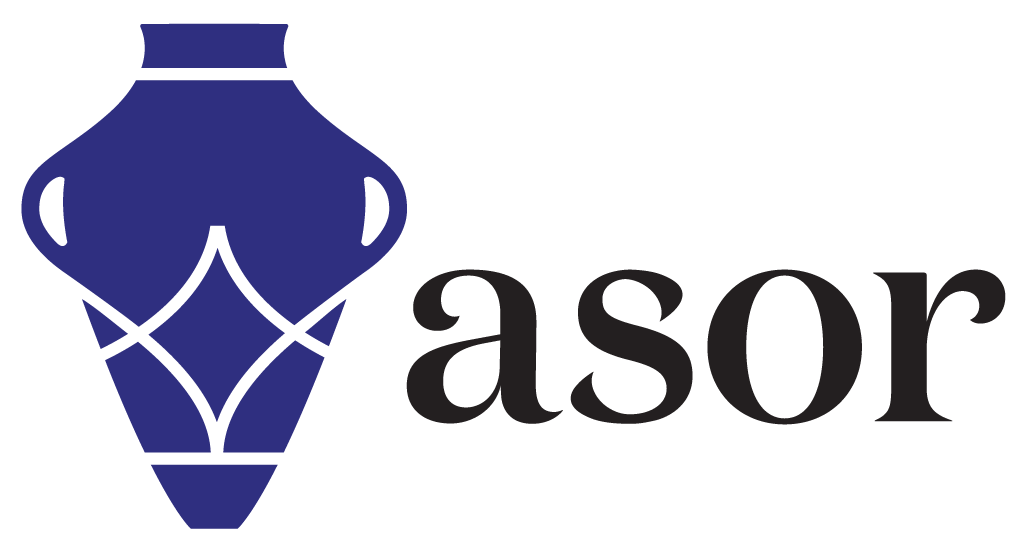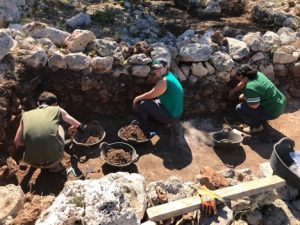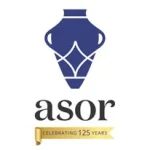

P.E. MacAllister Fieldwork Participation Scholarships
ASOR plans to award five MacAllister fieldwork participation scholarships of $2,000 each during 2026 (see Disclaimer below).
Established in 2013 through generous gifts made by the family and friends of P. E. MacAllister, scholarship funds have been designated to support the participation of ASOR members as volunteers or staff on excavation projects. MacAllister became part of the ASOR family in the early 1970s, and he served as Board Chair from 1994 through 2013. The P. E. MacAllister Endowed Scholarship Fund for Archaeological Volunteers will support five fellowships of $2,000 each for the summer of 2026 to participants in any ASOR-affiliated archaeological project.

Eligibility
Applicants must be members of ASOR or be enrolled as students at an ASOR-member school (see list of Institutional Members). Applicants from underrepresented groups may request a membership waiver in order to apply. Applicants are encouraged to use the Uniform Fieldwork Scholarships Application to apply for all of the named and unnamed Fieldwork Participation Scholarships. Some of the named grants are designated for particular excavations (e.g., Hazor or Tell el-Hesi), for particular groups (e.g., BIPOC and veterans), and for particular countries (e.g., Israel or Jordan). Please check the appropriate boxes on the Uniform Application so that you can be considered for as many different scholarships sources as possible. In order to be eligible, applicants are required to participate in an ASOR-affiliated excavation (see list).
Preference will be given to individuals that have not received support through the ASOR scholarship for fieldwork participation program or other funding sources for the summer of 2025. Additional preference will also be given to applicants who would not usually receive funding (for airfare, lodging or a stipend) from the excavation. Preference is also given to applicants who have not received ASOR funding for excavations in the past three years.
Applications from individuals must include the contact information for the director of the excavation project.
Upon completion of the field season, a report of 250-350 words and three appropriate photos (500 dpi resolution or higher) on site must be submitted to the ASOR office by September 1, 2026. Reports and photos should be sent via email with “fieldwork scholarship report” in the subject line. More information will be available after the recipients have been notified.
Scholarship recipients will be required to sign a waiver indicating that ASOR is not responsible for any injuries they might sustain during their time at the excavation in which they participate. They will also be required to sign a release of rights to ASOR for the inclusion of their report and photographs in one of ASOR’s publications. This award may only be used for allowable direct expenses. Indirect and/or overhead expenses are not permitted.
Disclaimer: If for any reason many archaeological excavations cannot take place during 2026, ASOR may at its sole discretion decide not to offer fieldwork scholarships. If ASOR deems such a decision as necessary, applicants may reapply for non-fieldwork summer stipends if ASOR offers stipends for 2026. Regrettably, applicants and successful applicants may not postpone fieldwork scholarships to another year if the applicant or ASOR decides that fieldwork scholarships will not be awarded in 2026. If the pandemic or any other reason causes a cancellation of fieldwork in 2026, applicants must reapply for funding in 2027 (or for stipends if they are made available in 2026).
Previous Recipients: $83,000 awarded
2025: $8,000 awarded
- Hannah Borotsik, University of Western Ontario
- Aslıhan Güçlü, Dokuz Eylul University
- Joshua Micallef, University of Bonn
- Talia Neelis, The University of British Columbia
2024: $10,000 awarded
- Sarah Brazeal, Arizona State University
- Abby Palmer, University of Central Florida
- Daniele Moscone, Kiel University
- Rhea Stark, Columbia University
- Riley Stockton, Reed College
2023: $8,000 awarded
- Tina Abo Al-Soof, Queen’s University Canada
- Marta Doglio, University of Pisa
- John Mooney, University of Calgary
- Annalise Pforr, University of Central Florida
2022: $17,000 awarded
- Noah Barton, North Carolina State University
- Roselyn Campbell, University of California, Los Angeles
- Chaya Cassano Reed, City University of New York
- Quinn Comprosky, DePaul University
- Wajed El-Halabi, University of Toronto
- Kathleen Forste, Boston University
- John Harmon, Lipscomb University
- Colton Hodges, Andrews University
- Emily Yankura, Brigham Young University
2019: $8,000 awarded
- Bryan Kohn, University of North Carolina at Chapel Hill
- Gabrielle Mace, Eastern Michigan University
- Terrence Nichols, Southwestern Baptist Theological Seminary
- Avary Taylor, Johns Hopkins University
2018: $6,000 awarded
- Harpreet Birdi, Wilfred Laurier University
- Katherine Burge, University of Pennsylvania
- Brittany Ellis, Harvard University
2017: $6,000 awarded
- Anna Ahrens, University of Evansville
- Julianna Smith, Portland Seminary of George Fox University
- Sara Soltani, George Washington University
2016: $6,000 awarded
- Chelsea Cole, Cornell University
- Rachel Kalisher, New York University
- Kristina Reed, La Sierra University
2015: $6,000 awarded
- Lorenzo Castellano, New York University
- Tiffany Earley-Spadoni, The Johns Hopkins University
- Michele Freyhauf, University of Durham
- Sarah Hanvy, University of North Carolina at Chapel Hill
- Austin Hill, University of Connecticut
- Heidi Hilliker, University of California, Los Angeles
2014: $8,000 awarded
- Laurel Appleton, East Carolina University
- Allison Cuneo, Boston University
- Caitlin Curtis, University at Buffalo
- Jacob Damm, University of California, Los Angeles
- Mark Gradoni, Indiana University, Bloomington
- Tina Johnson, Eastern Washington University
- Michael Koletsos, University of Arizona
- Cristina Tica, University of Nevada, Las Vegas

